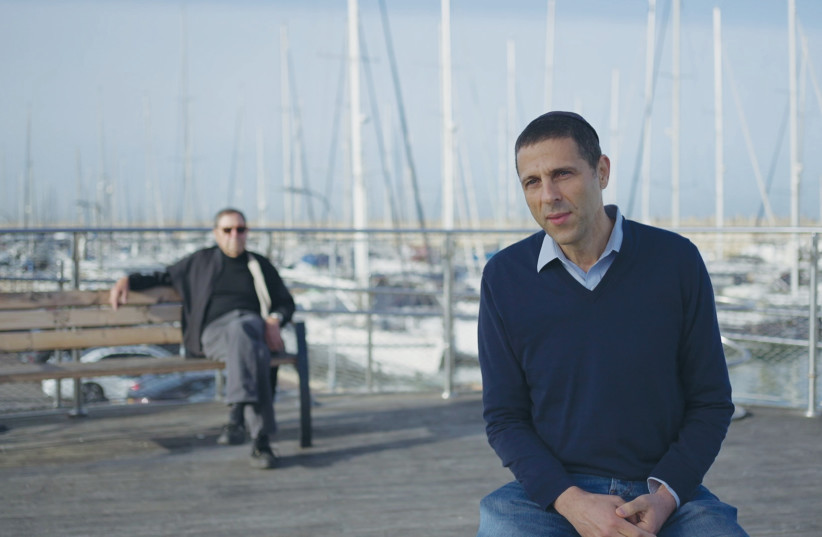There are enough twists, turns, and psychological tension in the new documentary on KAN 11 (kan.org.il), The Mossad and the Lillehammer Curse, to fill a dramatic miniseries.
You have probably heard of the story of the mistaken killing of Ahmed Bouchikhi, a waiter in Lillehammer, Norway, by the Mossad in 1973. They were searching for Ali Hassan Salameh, chief of operations for the Black September terror group and one of those who carried out the massacre at the Munich Olympics in 1972, and believed that Bouchikhi was Salameh.
But how this killing took place, and its aftermath, is a story that hasn’t been told in so much detail until now. The surviving members of the team responsible for the killing were interviewed for this movie, as were some of their family members. The Mossad members were from a very diverse range of backgrounds.
Perhaps the most fascinating figure in this whole story is Amina Al-Mufti, a Circassian psychiatrist from Jordan who was recruited by the Mossad in Europe after she became disenchanted with the Arab world. She has been written about before in some histories of the Mossad, but here there are extended remembrances of her by people who knew her well. She was incredibly brave and eventually paid an extremely high price for involvement. Don’t Google her; watch the documentary first and see her story unfold.
The others involved also have interesting stories, but perhaps the most controversial piece of information discussed by many of them is that Bouchikhi’s murder was not a simple case of mistaken identity. At first, he was misidentified, because he resembled Salameh. But once the Mossad agents in Norway investigated him and found out that he had lived there a long time and was married to a Norwegian woman, none of it made any sense for Salameh’s profile.

Despite the misgivings they expressed, they were ordered to kill him anyway. The other fact that does not look great for the Mossad is that they didn’t realize that the sudden arrival of so many foreigners in a small place like Lillehammer would raise suspicion. The Norwegian authorities were onto them immediately after the murder.
Dan Arbel, one of the agents, who now works as a security guard at a shopping mall, recalls that the judge said just a few words when he was sentenced: “You’re dangerous. You’re lying. Six years.”
Helen Mirren covered in documentary
HELEN MIRREN will be gracing the Jerusalem Film Festival with her presence later this week, as the star of Guy Nattiv’s movie Golda, about Golda Meir, and as a guest. So it’s fitting that HOT 8 is airing a documentary about this great actress, on July 12 at 9:15 p.m. and on HOT VOD.
The movie, Helen Mirren: A Royal Actress, does not cover her being cast as Meir, unfortunately, but it does follow her career up to just a few years ago. While the narration is a bit annoyingly hagiographic – at times it sounds like a press release – perhaps this is understandable given how incredibly talented she is and how much joy she has given to movie and television audiences.
This documentary is best when it lets her tell her own story through clips of interviews she has done over the years, and clips and photos from her films. However, it’s over all too quickly and I would have enjoyed seeing some longer scenes from her movies.
But the important roles are all there, including The Queen, Prime Suspect, and Calendar Girls, but there are also moments from both her early classical roles and her sex-kitten turns, such as the 1969 Age of Consent with James Mason. It’s fun to see her playfully tease the male chauvinist talk-show host with candor and refreshing honesty.
“I don’t see anything wrong with being thought of as sexually attractive,” she says in one interview. “The only thing that I don’t like about that particular kind of label, not that it’s a label that I’ve ever remotely put upon myself, not at all.
“The only thing I don’t like about it is [when] you’re wearing this label, the vast majority of other people are looking at you and saying, ‘She’s not very sexy at all.’ That’s what I don’t like.”
Must-watch nature series: Our Planet II
THERE HAVE been so many well-made nature series in recent years that it’s hard to single out one. But the second season of David Attenborough’s Our Planet II, streaming on Netflix, has both the incredible photography and assured storytelling that makes a good series great.
It looks at animal migration around the world, a complex subject and one that illustrates the impact of climate change on even the most remote locations with great clarity.
It’s shocking to see, for example, the Laysan albatross, standing on a beach in a remote spot in the Pacific surrounded by plastic that has washed ashore from thousands of miles away. It’s one of many images from the series that will stay with you.
